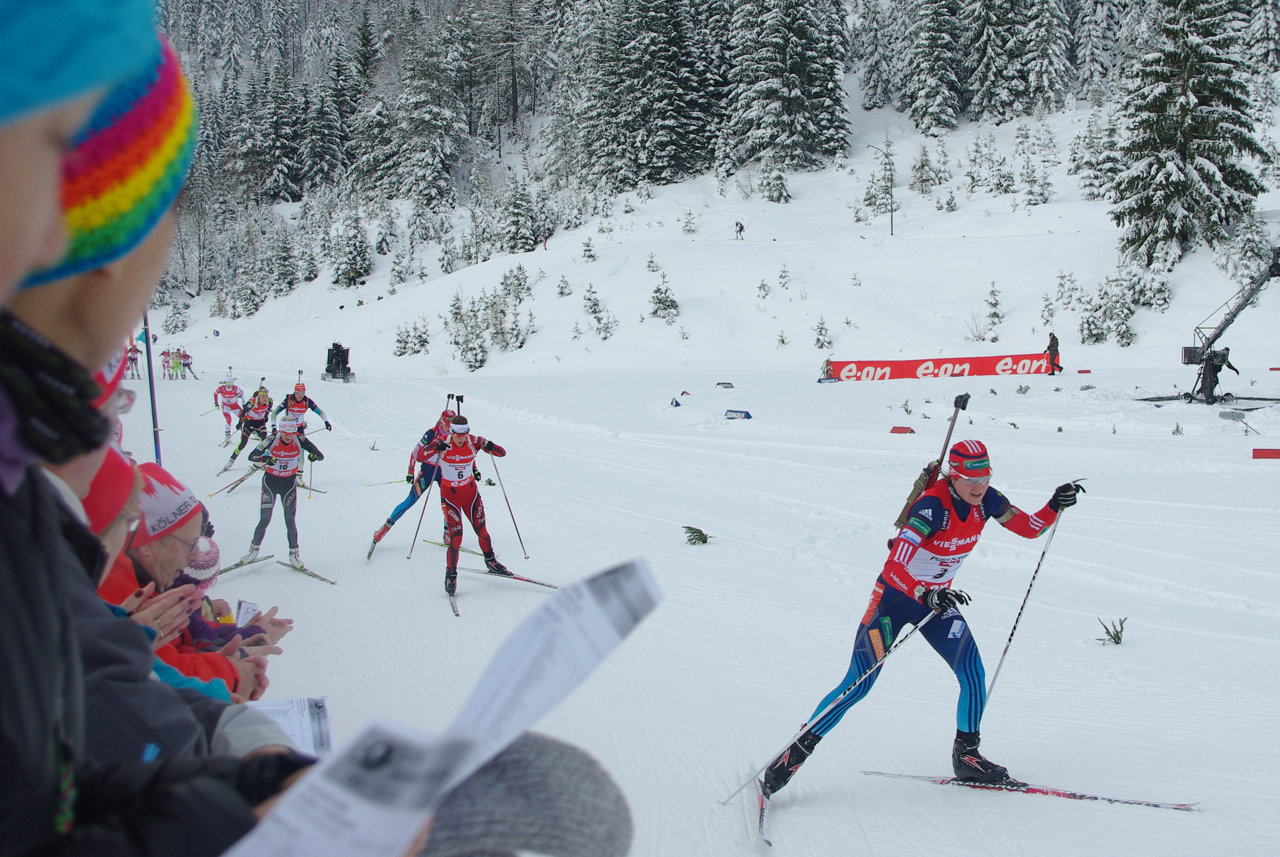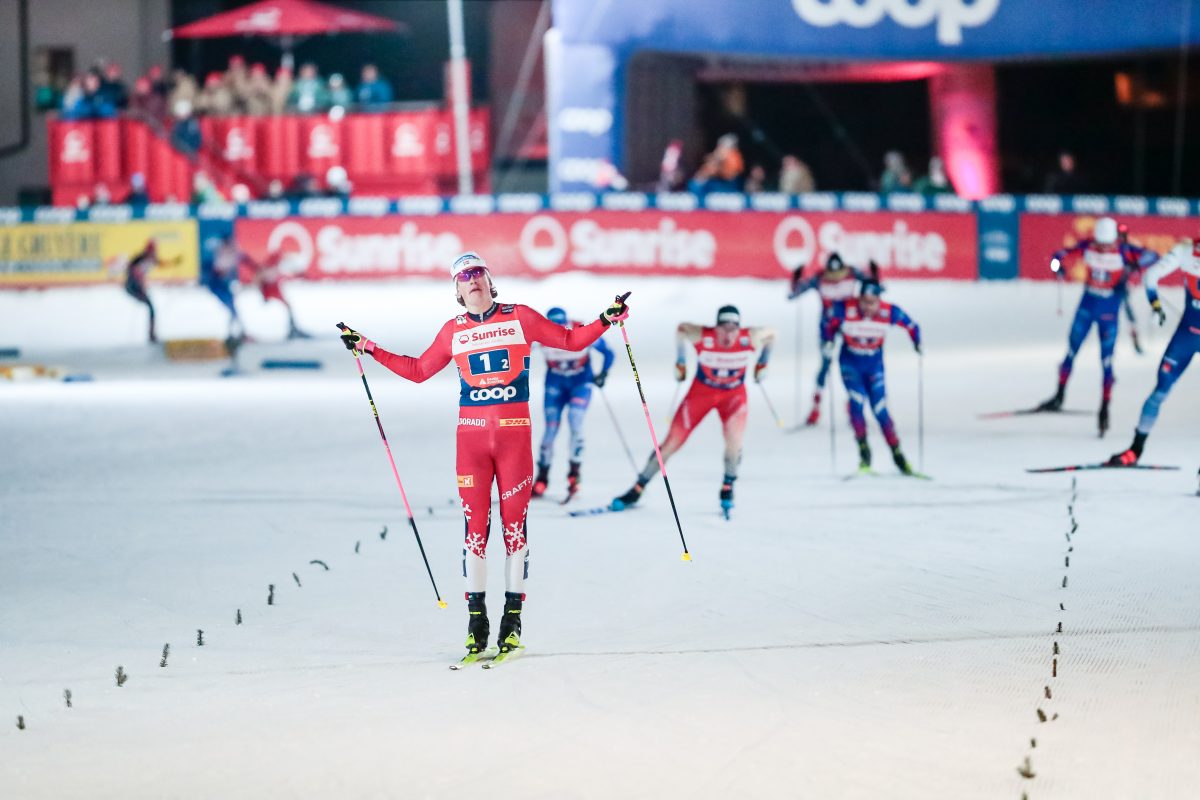
Over a month after provisional suspensions were issued, the International Biathlon Union (IBU) has released more details on two of the three athletes involved in a doping investigation which began in January. For the first time, the IBU officially acknowledged that two of the athletes in question were Russians Ekaterina Iourieva and Irina Starykh. The names had been released by Russian news site Championnat, but the IBU had refused to confirm any details.
In a press release posted to their website this weekend, the IBU also announced the the banned substance in question was, as had been widely speculated, the blood-doping drug recombinant erythropoetin (EPO). Both athletes’ “B” samples have now been tested and have also showed positive for EPO.
A third athlete who was caught at a similar time, Karolis Zlatkauskas, admitted to doping and waived his right to have the “B” sample analyzed. Separately in the nordic world, Austrian cross-country skier Johannes Dürr was also caught using EPO during the Olympics, bringing the total number of blood-doping cases this season to four.
The IBU wrote that Iourieva and Starykh were caught by out-of-competition testing in Pokljuka, Slovenia, on December 23rd, and that Iourieva also tested positive in the same place on January 1st. The urine samples were collected by the Slovenian anti-doping body on the direction of the IBU.
The “B” samples were analyzed by the Seibersdorf laboratory in Austria whose head, Dr. Günter Gmeiner, was recently invited to join the World Anti-Doping Agency’s Prohibited List Expert Group.
The provisional suspensions were handed out on January 28th. Starykh was the most successful woman on the Russian team this season, and was set to compete in the Olympics. She initially said that she was leaving the Russian team in order to see to the opening of her “B” sample and clear up the investigation, Iourieva’s “B” sample was not tested until February 27th and Starykh’s until March 3rd.
The coach of both women, Vladimir Korolkevich, is originally Russian but obtained Slovenian citizenship in the 1990’s and coached athletes there before returning to Russia. For the past year, he only directly coached half of the Russian women’s team, as the other group (which includes Olga Zaitseva, who placed third in the World Cup mass start in Pokljuka this weekend) is headed by Wolfgang Pichler. The Korolkevich training group had already had one training camp in Pokljuka already this year, a summer session in June.
At the Olympics, Korolkevich – who retained his position despite the doping cases and was even promoted within the Russian federation at the expense of Pichler – told Eurosport that if Starykh had been able to compete, “we would have had different results.”
The IBU’s anti-doping hearing panel has scheduled meetings with both Iourieva and Starykh at their headquarters in Salzburg, Austria, in the next few weeks. Up for debate are the lengths of suspensions to be handed out; it is unclear whether the athletes intend to fight the decisions. “The final decision will be published as soon as it is available,” the IBU noted in their press release.
For further information about Starykh, Iourieva, Korolkevich, and the scandal, please refer to our previous reporting:
Biathlon’s Aggressive Testing Led to Starykh Suspension — But Is It Enough?
Chelsea Little
Chelsea Little is FasterSkier's Editor-At-Large. A former racer at Ford Sayre, Dartmouth College and the Craftsbury Green Racing Project, she is a PhD candidate in aquatic ecology in the @Altermatt_lab at Eawag, the Swiss Federal Institute of Aquatic Science and Technology in Zurich, Switzerland. You can follow her on twitter @ChelskiLittle.




2 comments
Martin Hall
March 13, 2014 at 9:55 am
Why is the IBU meeting with these cheaters—both samples were positive—they are gone—-aren’t the rules that clear—if they are to appeal—so they do it—no special meetings giving them wiggle room now——and there was no explanation that is rational as to why they are meeting—-the penalty should be the maximum.
runswithjackels
March 13, 2014 at 10:04 am
Perhaps to try to investigate their system of doping/how they obtained the EPO and possibly others involved in doping both within and outside the Russian Federation. They are the endpoint of the doping but their has to be many others in the system. Hope they catch them all and ban them for a minimum of 4 years, if not life. Skiing need to follow cyclings lead, although cycling is not perfect yet, either.